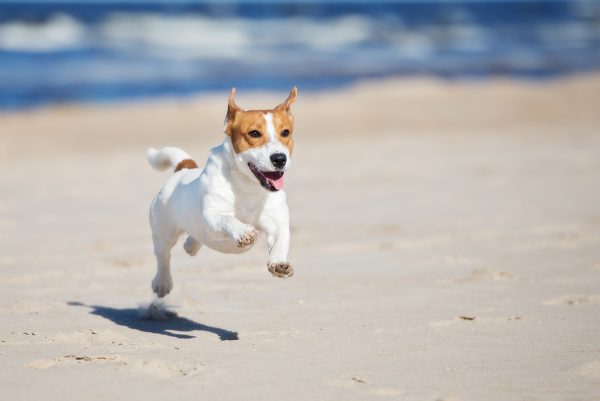The arrival of hot weather can be distracting—we start planning our holidays, spending time outdoors or simply enjoying the sun. But for others it is a season of high concentration: internal parasites.
As it happens, many parasites can endure the summer season without much trouble. In fact, some internal parasite eggs are exceedingly resistant to extreme heat and desiccation, so they can survive several years in humid and mild climates.
This, added to the consumption of water or food in poor condition, makes it all the more likely for your pet to get gastroenteritis.
Another key point to keep in mind is that dogs tend to frequent more, or for longer periods, public spaces such as parks, squares or beaches. This fosters a greater transfer of parasites from stool to the ground, when not collected immediately.
In addition, greater exposure to sandy soils, as when we go to the beach, predisposes pets and also people to suffer from cutaneous larva migrans, a type of disease originating in animals (zoonosis), in which roundworm larvae enter the body through the skin and produce lesions that cause intense itching in the area and that become easily infected.
This is especially significant if we consider a study carried out by the National University of the Northeast (Argentina) on the extent of zoonotic parasite contamination detected on the beaches of Corrientes, the capital city of one of the northeastern provinces of Argentina. The analysis concluded that 100% of the beaches that were studied contained at least one sand sample that tested positive for a parasite species capable of affecting humans. In turn, 96% of the dog stool samples that tested positive contained Ancylostoma spp., the causative agent of cutaneous larva migrans in humans. To prevent this, it is essential to reduce direct and prolonged contact with sand, for example by lying down on deck chairs or thick mats and also by not walking barefoot on sand.
Given the danger of contagion, we have a key role: to properly deworm our dogs every month and, when out on a walk, to always collect their stool to help minimize the contamination of the places we share with our pets.
For your pet to enjoy the summer and spend it in the best way, always talk to your primary care vet.

